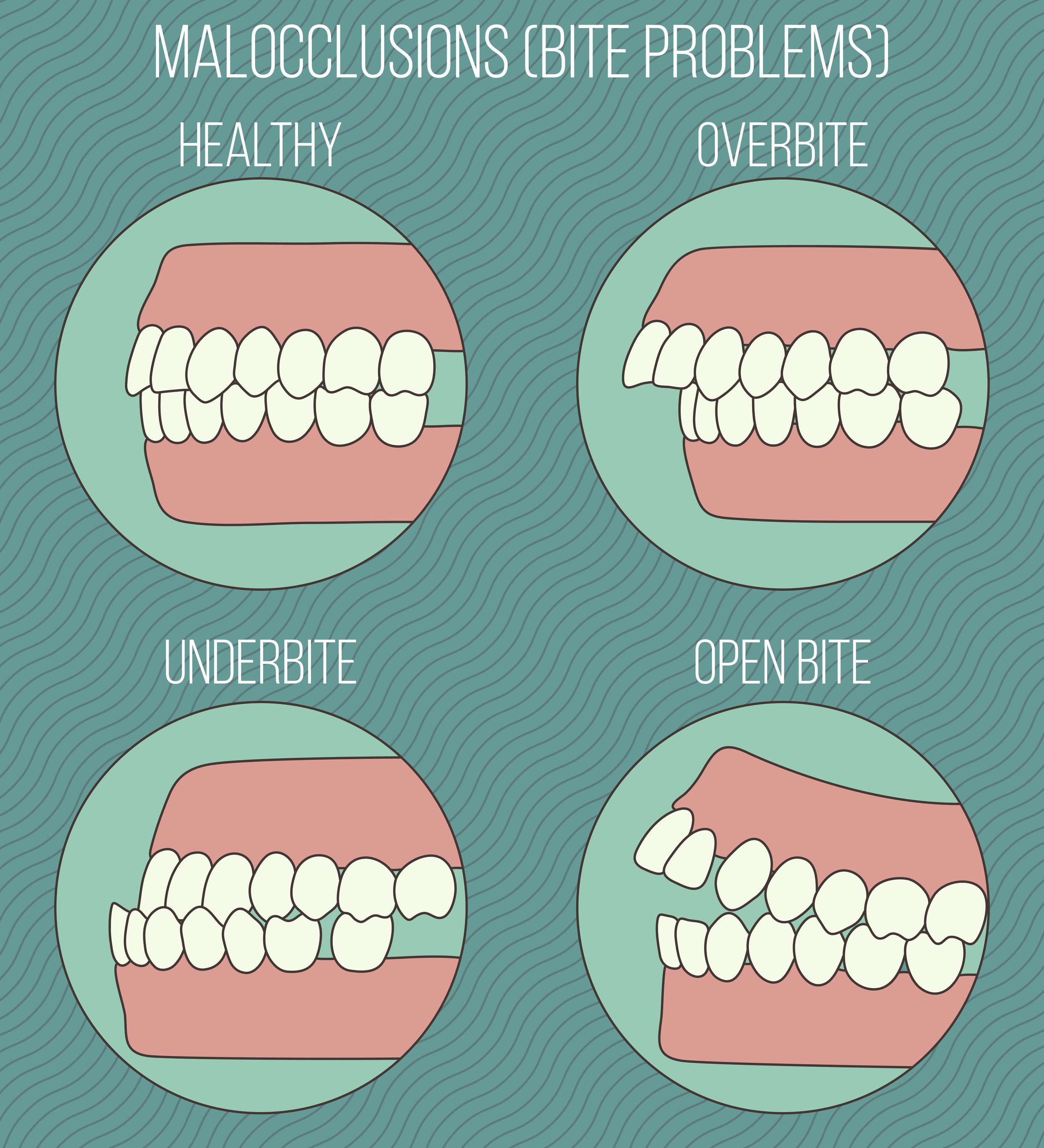Overbite: Causes, Risks and Treatment
Patients hear a variety of terms and jargon when visiting the dentist. One important term to understand is “overbite”, which is a type of malocclusion (meaning any misaligned or crooked teeth).
Overbite, also known as buck teeth, is a condition in which the top front teeth extend beyond the bottom front teeth. A slight overbite is normal in many people and mostly unnoticeable. However, more severe overbite of the teeth, when left untreated, can be problematic and should be evaluated by your dentist.
What can cause an overbite?
An overbite is a misalignment of the teeth that can stem from a variety of causes. Some causes of overbite are not preventable. An overbite might be hereditary or may be related to the shape of your jaw. However, some causes are habitual and can include:
Thumb-sucking (particularly past the age of 3 or 4)
Sucking on a pacifier
Tongue-thrusting (when the tongue presses too far forward in the mouth)
Teeth grinding or bruxism
Excessive nail biting
In addition to these causes, tumors or cysts can grow either in your mouth and shift your teeth or jaw forward to cause an overbite or misalignment condition.
What are the health risks of having an overbite?
Whether your overbite is naturally occurring or conditioned, you may experience health issues as a result depending on how severely misaligned your teeth and jaw become. Health concerns associated or caused by an overbite can include:
Excessive wear on or damage to other teeth or gums
Sleep apnea or other breathing problems
Difficulty biting or chewing
Speech problems
TMJ disorder, jaw pain, headaches or earaches
Disfigured facial appearance
In addition to health concerns, even a minor overbite may cause self-consciousness or anxiety about your smile and appearance.
How is an overbite treated?
An overbite should be treated based on the severity of the misalignment as well as the root cause of the overbite. If you have an overbite, regardless of severity, you should ask your dentist about any potential concerns as well as possible treatment plans to correct your concerns and prevent future issues.
Some possible treatment options include:
Orthodontics (either traditional braces or modern orthodontics)
Palate expansion
Orthognathic surgery (used in severe cases)
Extractions (in the case of overcrowding)
If your overbite is caused by a behavior, such as teeth grinding, then your dentist will also want to address the cause by including a recommended treatment plan for maintaining a healthy alignment once it has been achieved. You may also want to ask your dentist about available treatment options to relieve symptoms of overbite such as TMJ disorder or sleep apnea.
If you have an overbite and are concerned about the risk factors associated with your condition or would like to know how to improve the alignment and symmetry of your smile, please contact WoodSprings Dentistry today. Drs. Samantha and James Tejada, dentists serving The Woodlands, Spring and surrounding areas, provide modern dentistry and personalized treatment plans so that every patient can enjoy a healthy, more confident smile.

